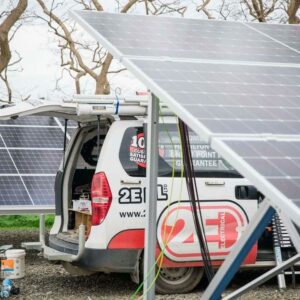What Is a Heat Pump Engineer?
Before diving into how to become a heat pump engineer, it’s important to understand what the role actually involves. The title “engineer” often brings to mind fields like mechanical or chemical engineering. But engineering is a wide field—and heat pump engineering is a crucial part of it.
A heat pump engineer is someone who designs, installs, and maintains heating and cooling systems for buildings. Their job is to ensure a space remains comfortable year-round using energy-efficient solutions. Depending on the size and use of the building, multiple engineers may work together to create the right system.
In today’s world, where energy efficiency and sustainability matter more than ever, heat pump engineers play a vital role in creating environmentally friendly and cost-effective systems.
How to Become a Heat Pump Engineer
There are two common pathways to becoming a heat pump engineer: through practical training (apprenticeship) or a theoretical education (tertiary study).
Both routes can lead to the same qualifications, and the choice depends on your learning style:
- If you prefer learning by doing, an apprenticeship may suit you best.
- If you prefer understanding the theory first, then studying at a polytechnic or university could be the better option.
Common qualifications include:
- Certificate in Heating and Ventilation Studies
- Certificate in Plumbing and Heating
- Diploma in Mechanical Engineering
Along with formal training, successful heat pump engineers also need certain personal and technical skills. These include:
- Ability to understand technical drawings and specifications
- Attention to detail and accuracy
- Strong communication and teamwork skills
- Good literacy and basic mathematics
- Logical thinking and problem-solving ability
Where Do Heat Pump Engineers Work?
With growing awareness around environmental impact and rising energy costs, demand for heat pump engineers is increasing. These professionals are employed in residential, commercial, and industrial settings to ensure efficient temperature control systems are in place.
Companies like 2E Electrical are at the forefront of providing heat pump solutions. Their engineers focus on delivering systems that are both cost-effective and energy-efficient—helping clients save money and reduce their carbon footprint.
This demand is expected to grow, making heat pump engineering a promising career path with strong job security and advancement opportunities.
Final Thoughts
Heat pump engineering combines technical knowledge, hands-on work, and the chance to contribute to a more sustainable future. Whether you take the practical or academic route, it’s a field with excellent prospects—and one where your work truly makes a difference.


